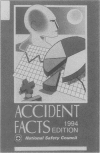Abstract
Despite criticism from safety professionals, scientists continue to use the word accident, meaning an unexpected, unintended injury, or event. Some argue for its use based on tradition, but "traditional" arguments appear to be invalid given our examination of the history of the word and its companion phrase act of God in statistics, law, and religion. People who were interested in public health recognized in the 1600s that unintended injuries were neither random nor unexpected. Legal scholars in the 1800s saw the word was useless for technical purposes. The word does not appear in the Bible until the mid 1900s and then only in a para-phrased edition. Others have maintained that the meaning of accident is well understood, even though it has not been perfectly defined. We maintain that without a clear definition, people substitute an image, which may be distorted or damaging.
Full text
PDF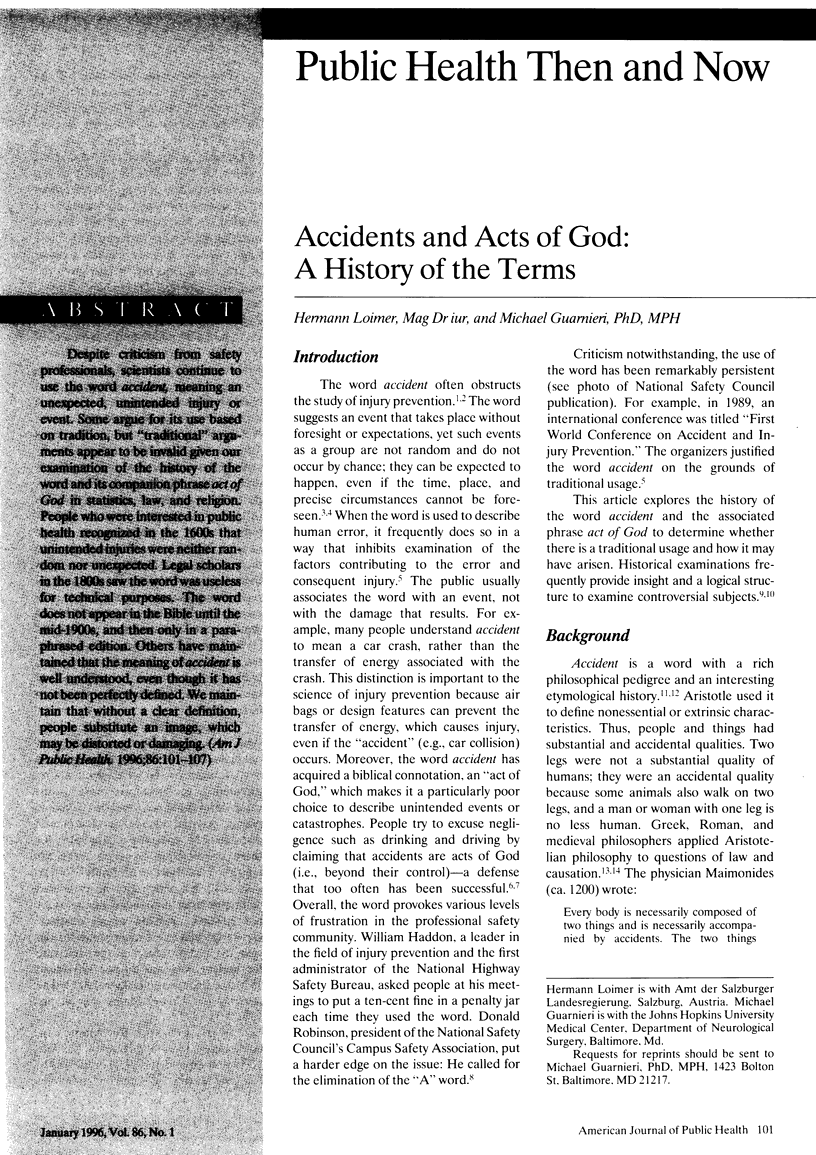
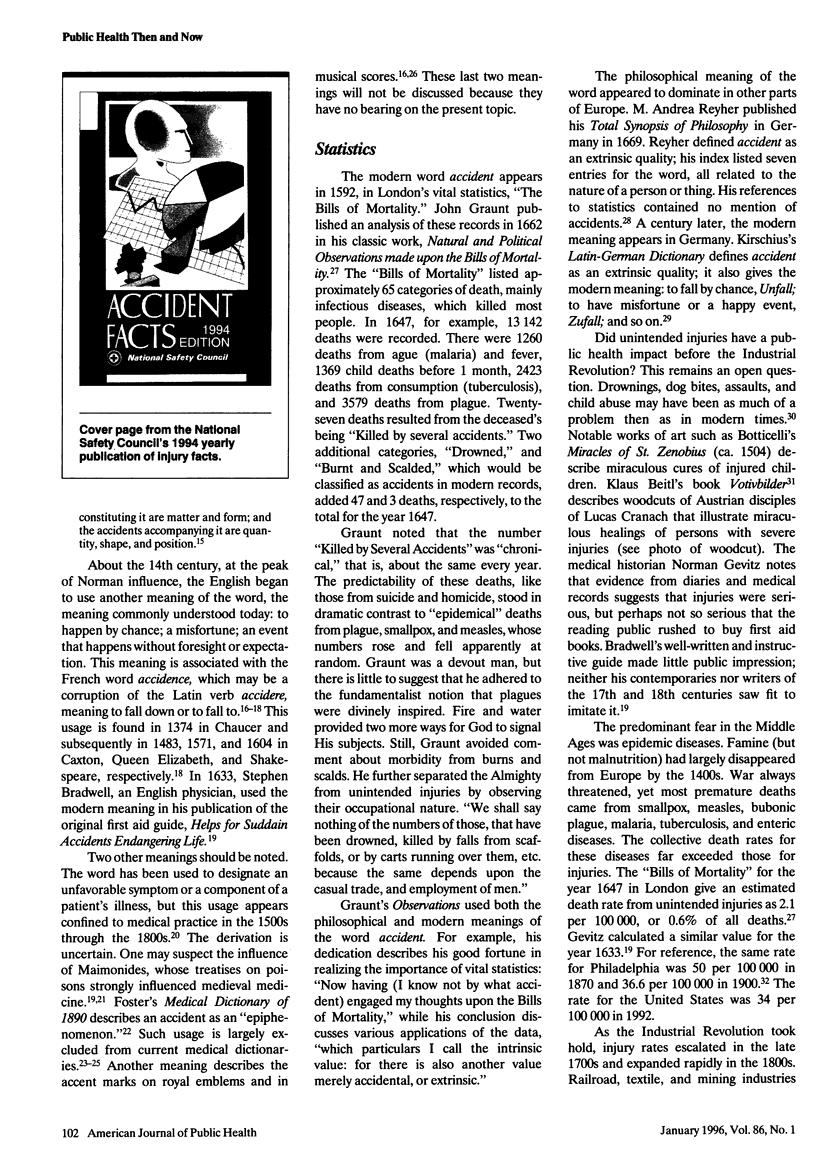
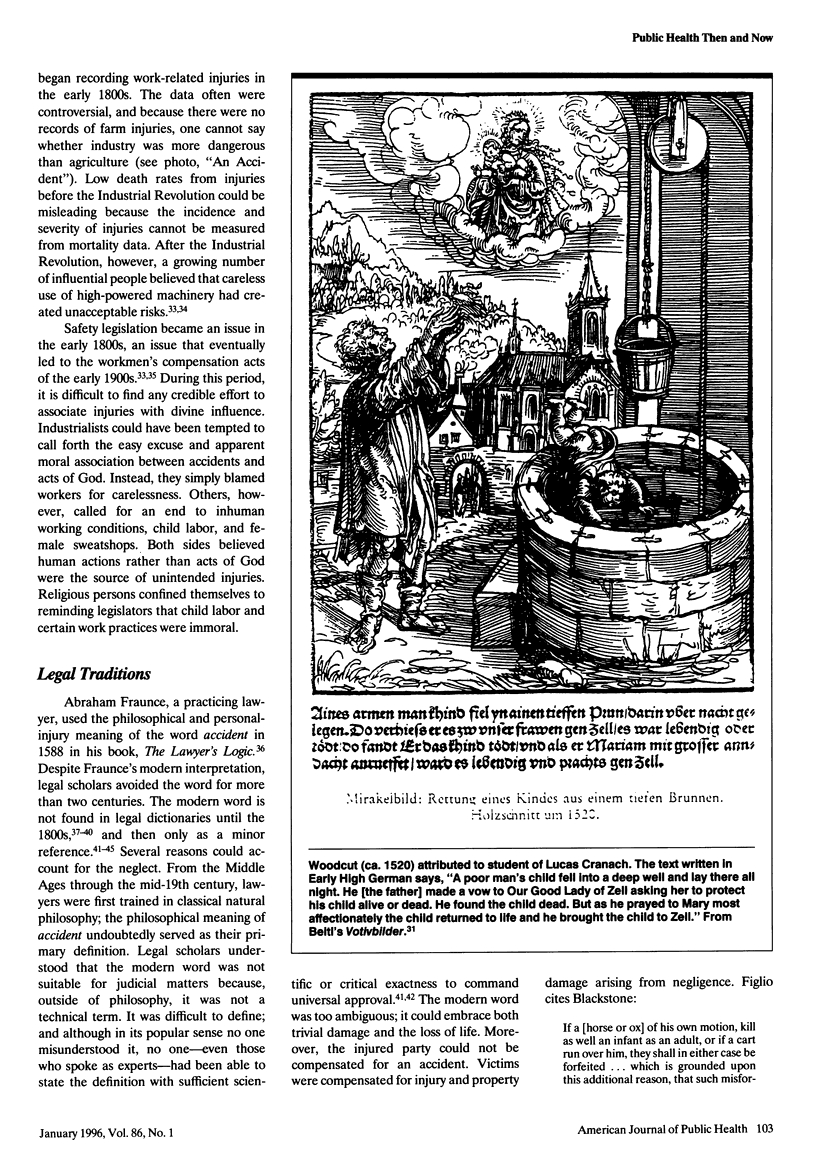
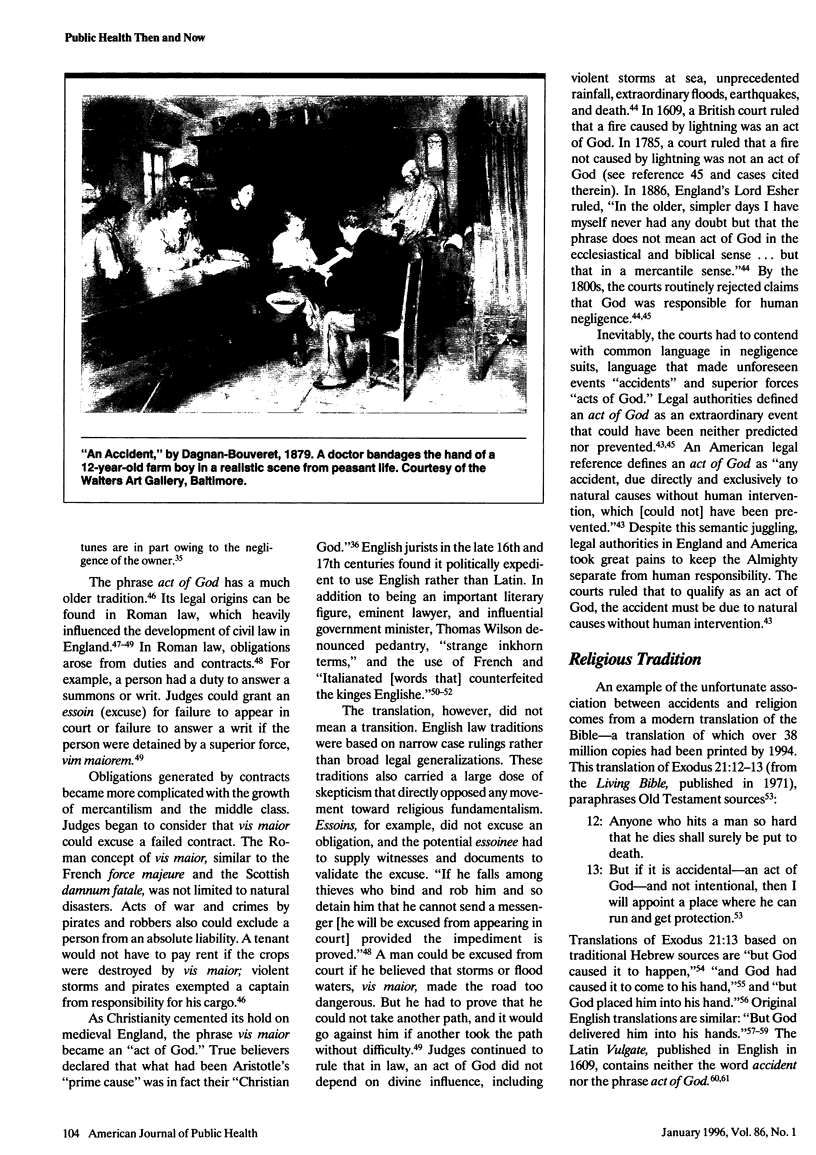
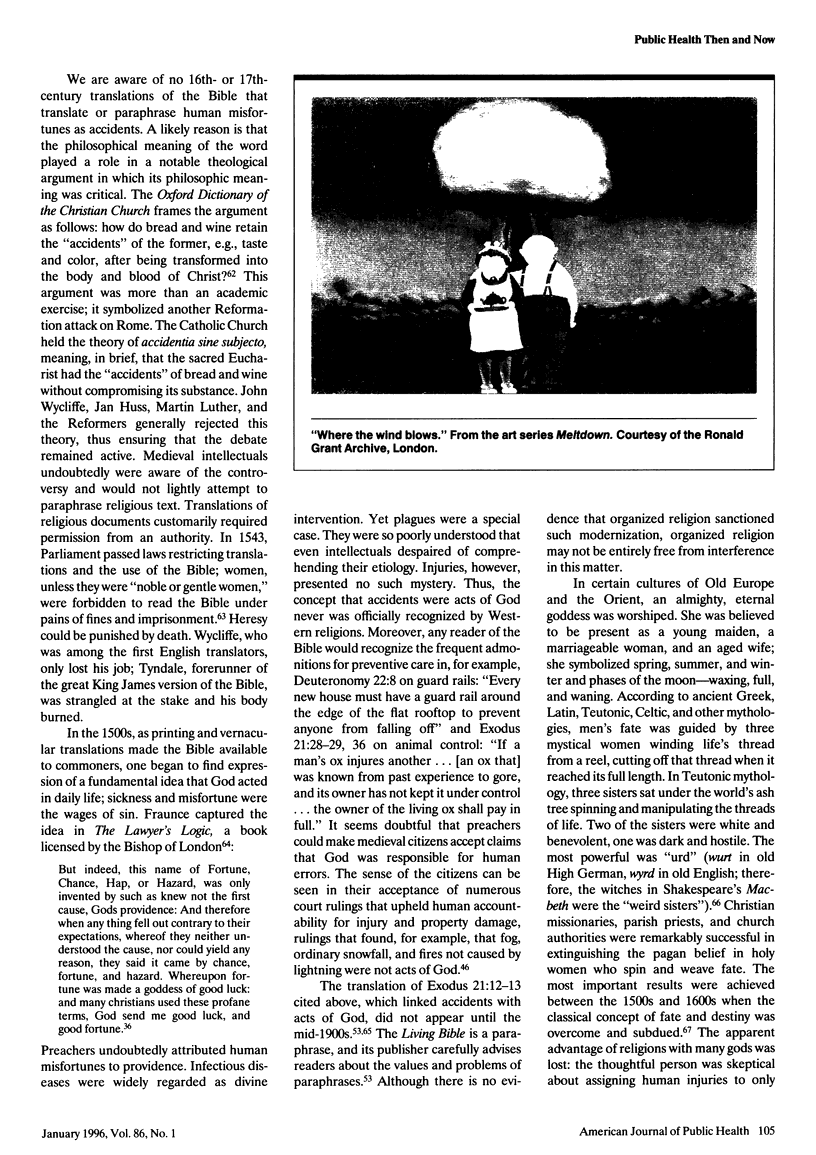
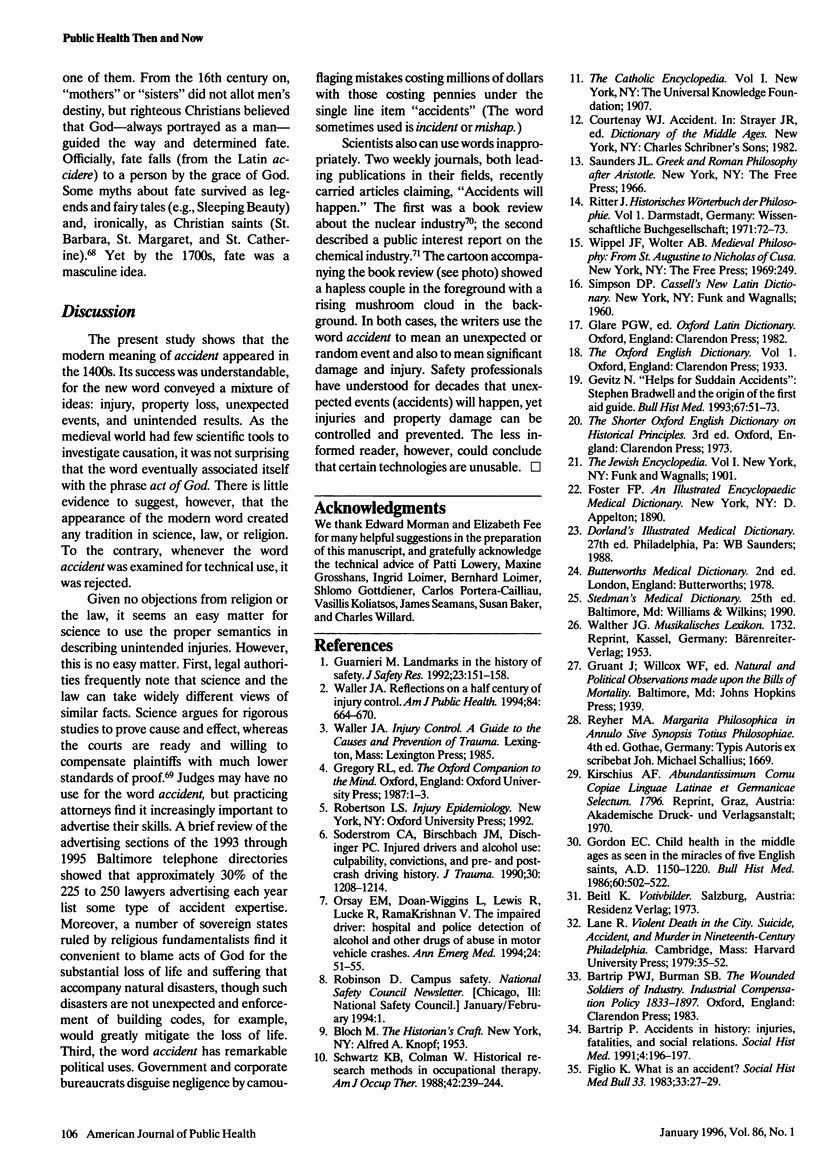
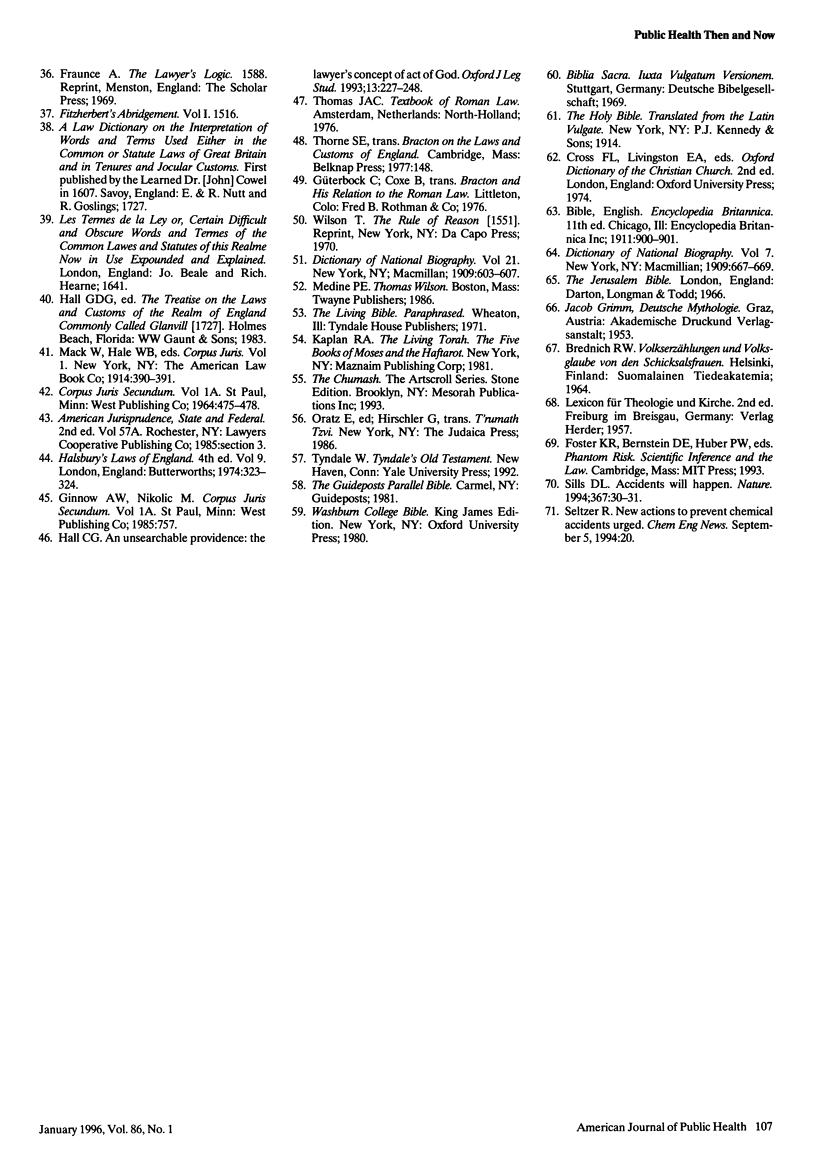
Images in this article
Selected References
These references are in PubMed. This may not be the complete list of references from this article.
- Figlio K. What is an accident? Soc Soc Hist Med Bull (Lond) 1983 Dec;33:27–29. [PubMed] [Google Scholar]
- Gevitz N. "Helps for Suddain accidents": Stephen Bradwell and the origin of the first aid guide. Bull Hist Med. 1993 Spring;67(1):51–73. [PubMed] [Google Scholar]
- Gordon E. C. Child health in the Middle Ages as seen in the miracles of five English saints, A.D. 1150-1220. Bull Hist Med. 1986 Winter;60(4):502–522. [PubMed] [Google Scholar]
- Orsay E. M., Doan-Wiggins L., Lewis R., Lucke R., RamaKrishnan V. The impaired driver: hospital and police detection of alcohol and other drugs of abuse in motor vehicle crashes. Ann Emerg Med. 1994 Jul;24(1):51–55. doi: 10.1016/s0196-0644(94)70162-8. [DOI] [PubMed] [Google Scholar]
- Schwartz K. B., Colman W. Historical research methods in occupational therapy. Am J Occup Ther. 1988 Apr;42(4):239–244. doi: 10.5014/ajot.42.4.239. [DOI] [PubMed] [Google Scholar]
- Soderstrom C. A., Birschbach J. M., Dischinger P. C. Injured drivers and alcohol use: culpability, convictions, and pre- and post-crash driving history. J Trauma. 1990 Oct;30(10):1208–1214. [PubMed] [Google Scholar]
- Waller J. A. Reflections on a half century of injury control. Am J Public Health. 1994 Apr;84(4):664–670. doi: 10.2105/ajph.84.4.664. [DOI] [PMC free article] [PubMed] [Google Scholar]



